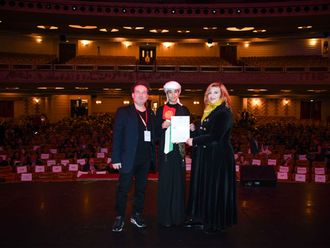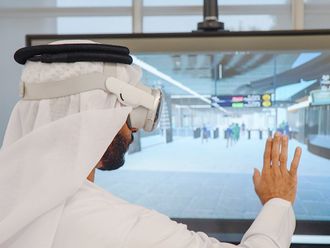Fourteen people were killed and over a 100 injured when a series of bombs went off in Manila yesterday, leaving shopping malls and bus stations empty of people, and plunging a city celebrating year-end holidays into panic.
The attacks coincided with the Philippines' worst political crisis in years, triggered by the impeachment trial of President Joseph Estrada on corruption charges. Ambulance sirens wailed as police rushed to the bomb scenes on a suburban train, a bus, a park bench near the U.S. Embassy, a warehouse at the main airport and outside a luxury hotel.
Two people have been arrested but so far no group has claimed responsibility. A government spokesman said that authorities were working on the possibility the bombs had been placed by the Abu Sayyaf Muslim separatist group which operates mostly in the south of the country. The first four almost simultaneous explosions were at around noon (0400 GMT).
A fifth bomb, about two hours later, killed a policeman who was trying to defuse a device in a gift-wrapped package. The National Disaster Coordination Council said that nine people died - four of them on the spot - when the first bomb ripped through the roof of a moving elevated train at Taft Avenue at five minutes past noon.
Sixty-two others were injured in the explosion. Manila's elevated Light Railway Train system transports an average of 400,000 people a day. Yesterday it was packed with shoppers on their way home with bags filled with groceries for the New Year midnight meal, a tradition among Filipinos. Eyewitnesses saw men and women lying on stretchers - their legs and arms blown away.
Estrada said he had placed the armed forces and police on full alert. Asked if the attacks would force him to declare martial law, he told reporters: "I don't believe so, not yet - that's still far off."
Earlier, Press Undersecretary Mike Toledo said the incidents were the handiwork of leftist protesters who have been calling for Estrada to step down. Satur Ocampo of the opposition National Democratic Front said the government might have initiated the series of bombings to pave the way for the declaration of a state of emergency and prevent the trial from continuing.
Estrada however called on the police, the military and the intelligence sectors to undertake a thorough investigation that would lead to the immediate arrest of those involved in the explosions.
14 killed, 100 injured in wave of Manila bombings
Fourteen people were killed and over a 100 injured when a series of bombs went off in Manila yesterday, leaving shopping malls and bus stations empty of people, and plunging a city celebrating year-end holidays into panic.












